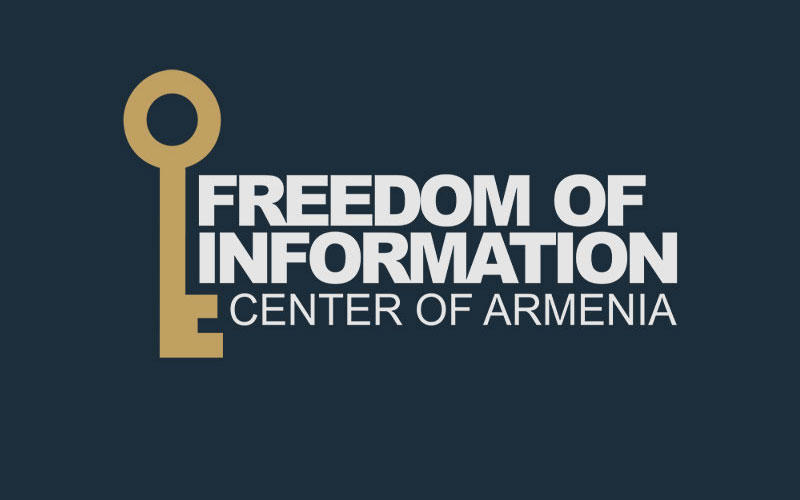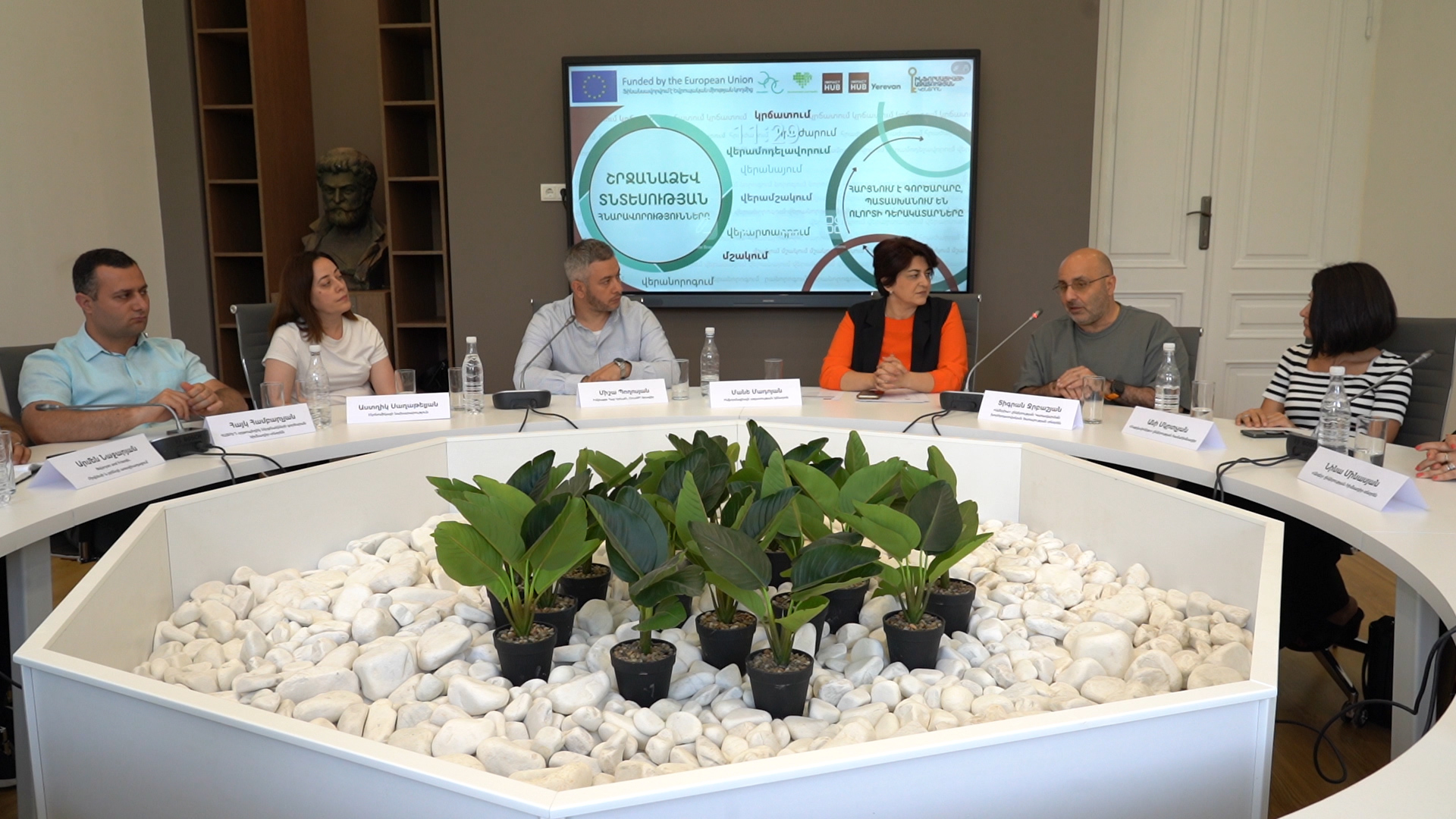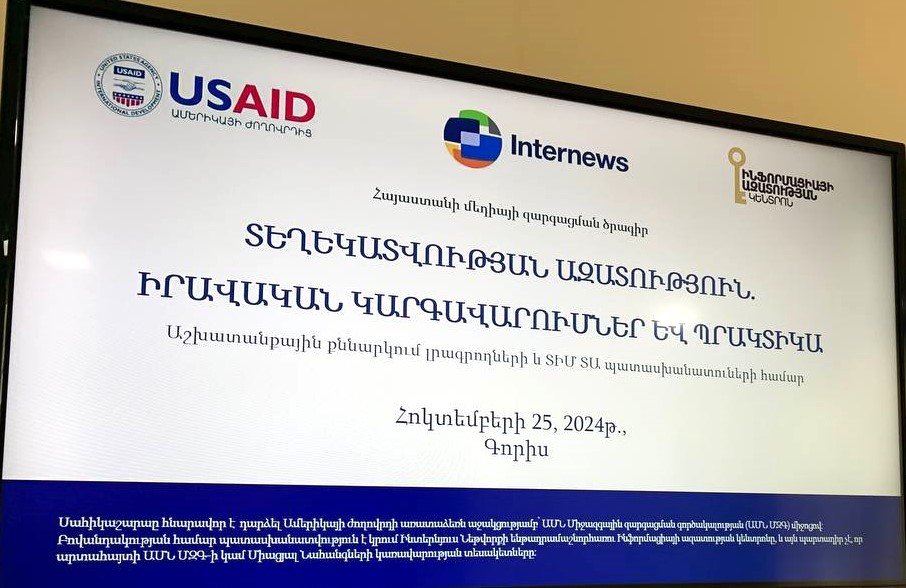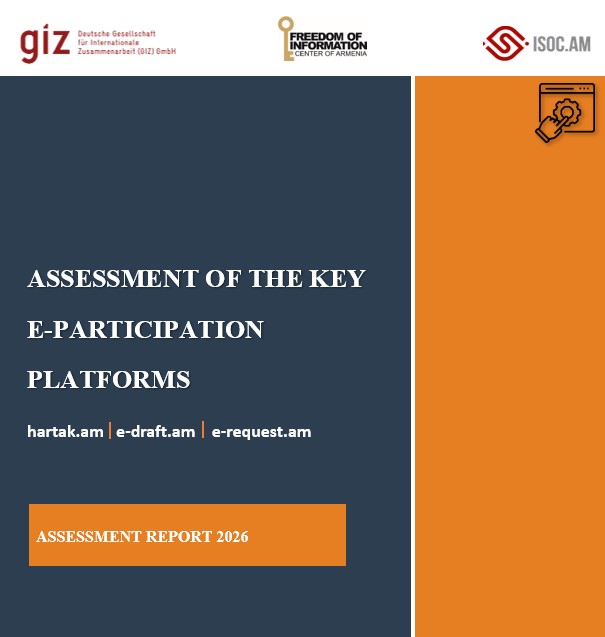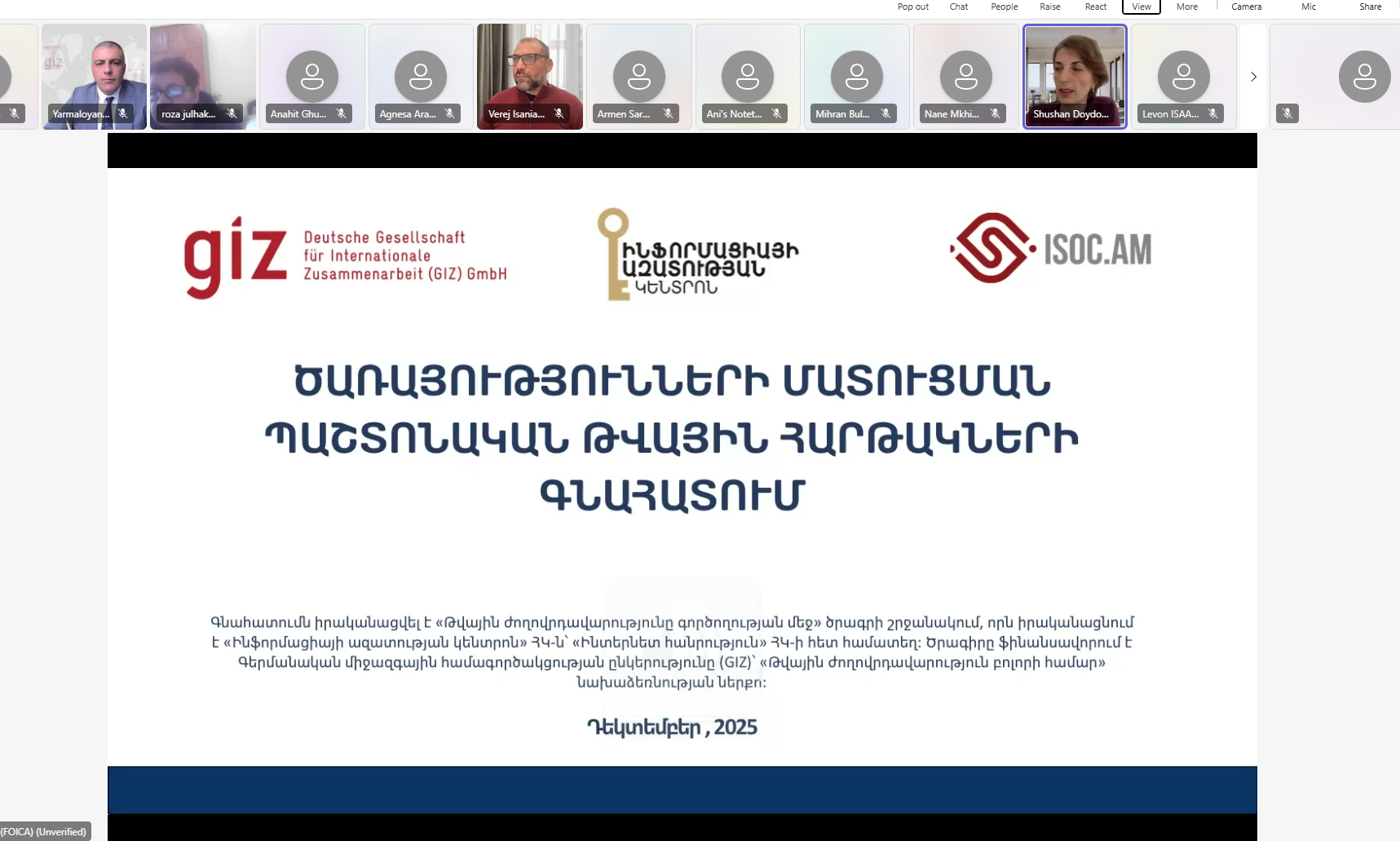 On 14-15 of March the Freedom of Information Center together with the RA General Prosecutor’s Office organized a professional training session for mass media representatives in Tsakhkadzor named “The Authorities of the Prosecutor’s Office Activity at the Contemporary Stage of Judicial Reforms and Major Problems of Freedom of Information”.
On 14-15 of March the Freedom of Information Center together with the RA General Prosecutor’s Office organized a professional training session for mass media representatives in Tsakhkadzor named “The Authorities of the Prosecutor’s Office Activity at the Contemporary Stage of Judicial Reforms and Major Problems of Freedom of Information”.
The working discussion was mainly aimed at discussing with the journalists elucidating legal aspects the peculiarities of prosecutor’s office activity, the order of information provision pertaining to the activity of the prosecutor’s office, the publicity limits of the provided information, etc.
Agvan Hovsepyan, the RA Prosecutor General, in his speech of welcome specially outlined the necessity of providing accurate and verified information on the work of prosecutor’s offices to public. “The Prosecutor’s Office cannot become a “black box” for information; we provide public with information, which does not affect preliminary investigation”, noted the RA Prosecutor General. Besides, Agvan Hovsepyan presented some cases, when publicity affected crime detection
Armen Ashrafyan, Head of Department in charge of Corruption and Organized Crime at the RA General Prosecutor’s Office, talked about the peculiarities of control exercised by the Prosecutor’s Office and legal proceedings for criminal cases.
Artak Harutyunyan, Head of Organizational and Control Department at the RA General Prosecutor’s Office, in his speech referred to the structure and authorities of the Prosecutor’s Office and their implementation order. “We face a situation when unsubstantiated denials previously issued by the court of cassation are all now substituted for substantiated.”
Nelly Harutyunyan, Head of International Legal Relations Department at the RA General Prosecutor’s Office, mostly spoke about the role of the Prosecutor’s Office in defending the rights of the RA citizens in foreign countries, extradition and exchange of information.
FOICA and National Assembly expert Marine Hakobyan presented the FOI Law, orders for denials and payment procedures, restrictions/limitations for information provision, etc. “Publicity in judicial practice is provided in two ways: there is a publicity principle addressed to a person, which is a function of information awareness directly destined for that person and society awareness through mass media.” The journalists were interested in the limits of information pertaining to private life and family secrets, legal rationale of the information considered as prejudicial inquiry secret, etc. The present inquired from the expert whether shooting is allowed in the private ownership areas (shops, etc.). The answer of M. Hakobyan was ‘yes’, since shot are the goods sold there, which are not private property”
Tigran Poghosyan, a senior researcher at “Prosecutor’s School” State Non-Commercial Organization (SNCO) spoke about the verge between freedom of speech, libel/slander, and offence. He presented in a detailed manner the international practice, the awards passed by the European Court of Human Rights pertaining to the discussed subject-matter, etc…
The event was conducted with financial assistance of USAID within the framework of “ACCESS TO INFORMATION FOR COMMUNITY INVOLVEMENT” project.

